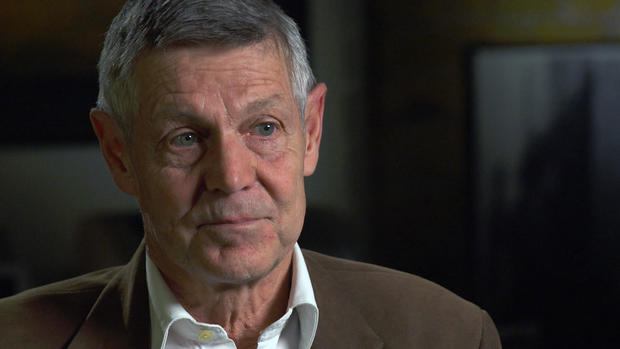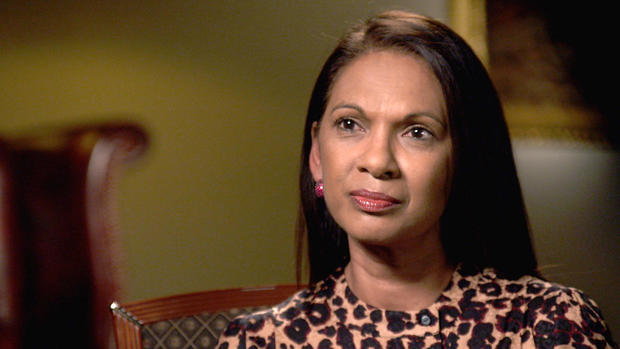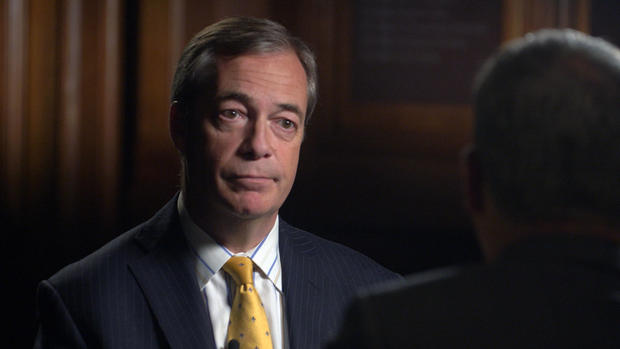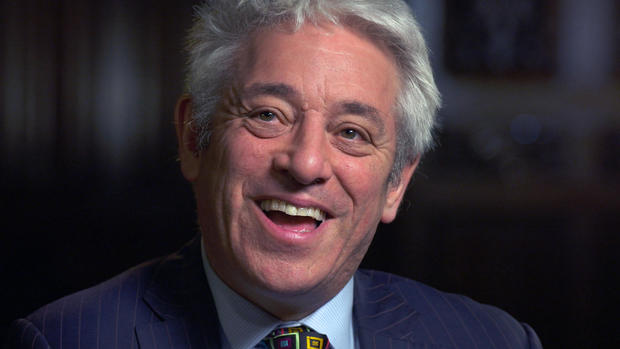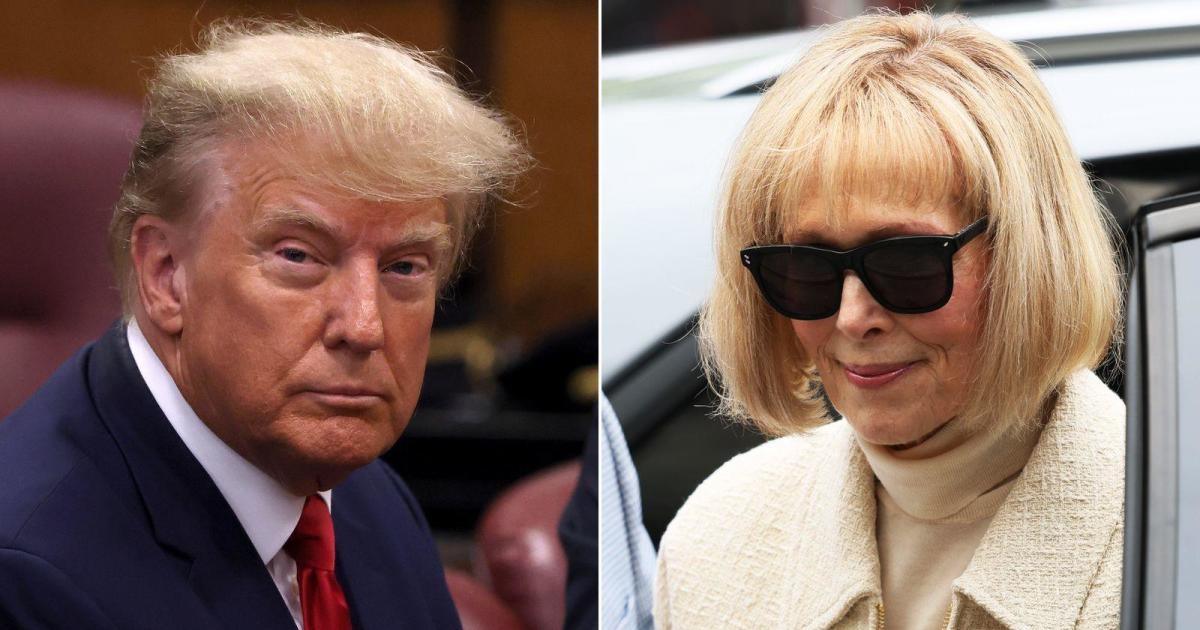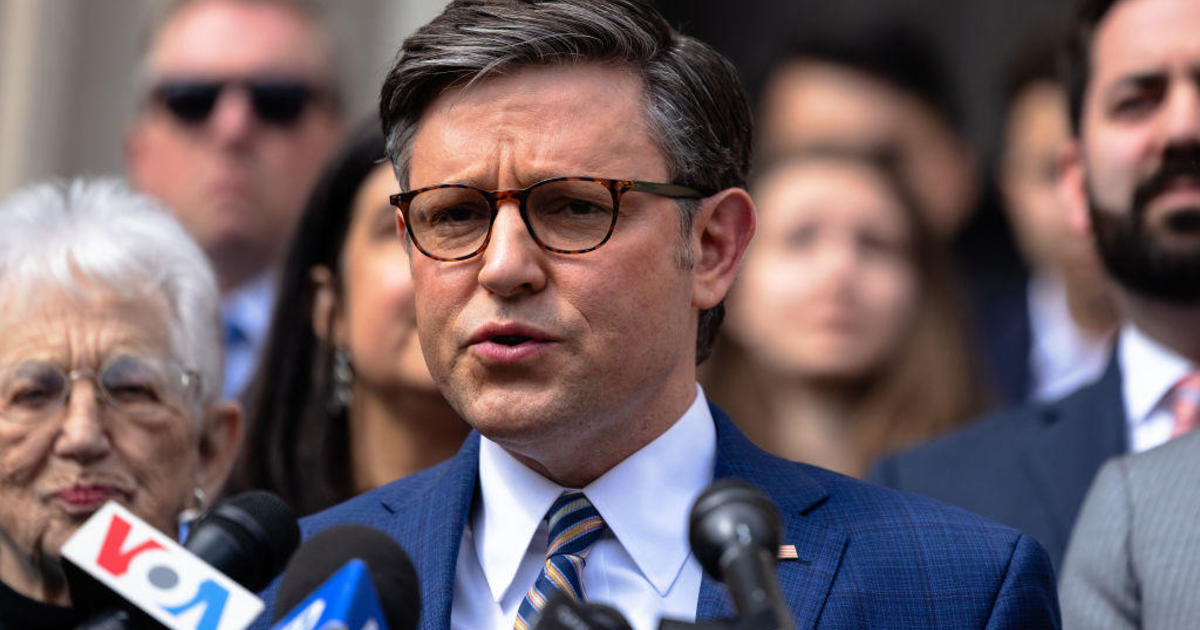Three years later, Britain is still battling over Brexit
They say that breaking up is hard to do. It's one thing to declare, "I'm out of here." It's something else entirely to disentangle finances and come up with custody arrangements. If divorce between two people is seldom tidy, imagine the complications when the split is, effectively, between a country and a continent. The United Kingdom is learning this the hard way. British voters decided to exit, or Brexit, the European Union, ending a long marriage. That was in June of 2016. More than three years later, you might say that the U.K. is still sleeping on the couch. This past Thursday, the deadline to leave passed without resolution. Yet there is a certain uniquely British theatricality to Brexit — a mix of colorful characters, conflicts, threats, promises, but still, no clear exit strategy.
John Bercow in Parliament: Order, Order
He may demand it. But order has been in short supply lately at the Palace of Westminster.
John Bercow in Parliament: Be a good boy, young man. Be a good boy.
Thought partisan politics was an exclusively American issue? Take a look at the mother of parliaments.
Boris Johnson in Parliament: I have to say Mr. Speaker I have never heard such humbug in all my life.
You'd be forgiven for thinking you'd walked into a street fight, with considerably nicer upholstery.
Barry Sheerman in Parliament: This Prime Minister, to talk about morals and morality is a disgrace
John Bercow: Order.
It falls to the Speaker, John Bercow, to preside.
John Bercow: Calm.
Unlike Nancy Pelosi, this speaker doesn't usually vote. His job, keeping, well, order. In theory, anyway.
John Bercow: Order.
Jon Wertheim: Can we get you a gavel? They make those. Would that make your job easier?
John Bercow: I'm not sure it would and its very un-British to have a gavel in the chamber. Although there is a general requirement of brevity, most people, doubtless myself included, think that we are being briefer than we are. (LAUGH) And most people are in favor of brevity, as long as it is someone else's.
The dividing lines: The United Kingdom's decision to exit the European Union, the 28-country political and trading bloc. This issue has not only engulfed the doorsteps of Parliament but the country as a whole. Brexit will impact every bit of the economy from roaming charges to auto parts; from cattle to cod.
Paul Joy, whose family has been fishing for centuries, cannot wait to leave the European Union and its limits on his catch.
Paul Joy: It's as bad as we've ever seen. It's been decimated over a period of time. I can remember the days fishing when we just had to go out there and fish. And there was no such things as quotas. We had abundant fish stocks before we entered Europe.
To understand the current scrap over Brexit, it helps to understand an ancient dispute: the Battle of Hastings. Which certainly isn't lost on these guys, who reenact it every year. In 1066, William the Conqueror defeated the Anglo-Saxon King Harald and the Norman Conquest changed England forever, becoming an important plot point in Britain's complicated relationship with Europe.
FOOL: You're talking to a fool sir. I am not a great political theorizer or a historian.
In the great tradition of Shakespeare, the fool knows of whence he speaks.
FOOL: As long as there has been an England there has been an opinion upon Europe.
On a clear day, you can look out across the English Channel here and see the French port of Calais, only 20 miles away.
But if you really want a sense of just how close the United Kingdom sits to mainland Europe, consider these sheer magnificent white cliffs of Dover. They represent the original split between this country and that continent. Hard proof that the United Kingdom and Europe were once, quite literally, attached. This geological Brexit came tens of thousands of years ago during an Ice Age. Since then, the Cliffs serve as a fortress protecting against invasion and also serve as a reminder that this is truly an island.
Jon Wertheim: This ambivalence toward Europe here. What do you attribute that to?
Matthew Parris: The ambivalence towards continental Europe in Britain is very, very deep rooted and very long-standing indeed.
Matthew Parris was a Conservative member of Parliament in the 1980s. For the last 20 years, he's been a columnist for the Times of London.
Matthew Parris: I mean, I could (LAUGH) go back to Elizabeth I, the Spanish Armada. I could go back to Catholicism. The Catholic plots. Henry VIII. I could go back to the First World War, the Second World War.
It was after the Second World War that Winston Churchill encouraged the creation of a European bloc, so as never to repeat the horrors of the first half of the 20th century.
Winston Churchill: "Call it maybe The United States of Europe."
In 1973, Britain joined what became known as the European Union, a single market with no customs, no tariffs, and effectively, no borders. It's a trading treasure, says Gina Miller, a prominent London businesswoman.
Jon Wertheim: You're saying the same way food and cars and medicine goes from Kansas to Missouri, that's the kind of seamless relationship you have with 27 other countries.
Gina Miller: It is, and we have, you know, if you look at that whole population, we have a market on our doorstep of over half a billion people
Jon Wertheim: The combined population--
Gina Miller: The combined population of the EU member states.
Jon Wertheim: And people too, right? Poles can come here to work, and Brits can go to Paris and Berlin.
Gina Miller: Yeah, we ha-- we've had-- freedom of movement has been really crucial to our economy, because we've been able to plug the gap when it's come to certain skills.
Unified, countries in Europe can compete with the U.S. and China. But this borderless Britain, so appealing to Miller, is precisely what enrages the so-called Brexiteers, such as Nigel Farage, an aggressively polarizing figure nicknamed the Godfather of Brexit.
Jon Wertheim: For years you've had a slogan, "I want my country back." Where did it go and where do you want it to go?
Nigel Farage: Well, you know, if you have foreign judges, if you have foreign parliaments, if E.U. law is superior to your law-- you can't even control your own borders, you can't even catch your own fish in your territorial waters, it's not, you know-- you're not a country.
By posing in front of a billboard featuring Middle East migrants, Farage played on fears of mass immigration inflaming tensions. And his campaign to leave Europe picked up traction with more mainstream politicians. By the summer of 2016, British membership of the EU was put to a referendum.
Enter Boris Johnson, stage right. Reliably rumpled and strenuously self-parodying, Johnson was ending his tenure as London's mayor, and seeking to feed his national political ambitions. Brexit provided nourishment.
Boris Johnson: Can we go forward to victory on June the 23rd? Yes we can.
Johnson became the frontman for British citizens nostalgic for Empire and feeling left behind in a changing world.
Matthew Parris: I think the Brexit people knew very well what they were playing to. They-- they adopted a very effective slogan quite early on, which was, "Take back control." and it was devilishly effective.
Jon Wertheim: We're regaining what was once rightfully ours.
Matthew Parris: Make America great again. (LAUGH)
A result that surprised even Johnson, the vote passed 52% to 48 in favor of leave.
So it was, the door to 10 Downing Street, became the revolving variety. The prime minister, David Cameron, resigned over the Brexit result; Theresa May came in, only to resign herself when she couldn't get Brexit done. She was replaced by Boris Johnson last July. Brexit brought delays and uncertainty and grim projections that the British economy would shrink significantly as a result of leaving. Acting as a private citizen fed up with it all, Gina Miller demanded that Parliament have a voice on such a critical issue. So she filed a lawsuit.
Jon Wertheim: You took the government to the Supreme Court, the highest court in this country, not once but twice. You are a busy woman. (LAUGH) Why did you undertake this?
Gina Miller: It sounds-- maybe a flippant thing to say, but-- nobody else was going to do it. And I'm sorry. You have to consult and debate with Parliament before we leave the EU.
Miller won her cases, pushing Parliament to center stage, which, in turn, helped mint an unlikely star in The Never-Ending Brexit Caper.
John Bercow in Parliament: Let me say to people bellowing from a sedentary position, stop it.
John Bercow, Speaker of Parliament.
John Bercow in Parliament: The house must calm itself. Zen. Restraint. Patience.
For centuries, the Speaker has been a neutral arbiter pinned to the sidelines. Not this speaker. Consistently ruling against the Brexiteers, he's put himself squarely in the center of the action. His supporters say that he has modernized the role. Brexiteers say Bercow oversteps; as though the referee has suddenly become the captain of the opposing team.
Bernard Jenkin in Parliament: It is becoming remarkable how often you please one lot and not the other lot.
John Bercow: What I say about that is that you should always view with some suspicion and reserve people who when they're losing... or think that they're getting a rough deal, moan about the referee. And I think these moaning minnies ought to cease moaning. But do they bother me? Do I lose sleep? Am I going to find that my hair turns even whiter as a result of the rancorous demonstrations of discontent by some of these characters? No. I couldn't give a flying flamingo about their protests.
Geoffrey Cox in Parliament: This Parliament is as dead as dead can be!
Jon Wertheim: That was the Attorney General.
John Bercow: Yes, well, he's entitled to his view, but he suffers from the notable disadvantage of being wrong.
Bercow may have emerged as a most unlikely cult figure, but he has leaned in to his celebrity.
John Bercow: Jon, welcome to the state apartments of Speaker's house.
Moments after a critical session last week, he invited us to his 'modest' apartment deep inside the Palace of Westminster, surrounded by ghosts of speakers past.
John Bercow: Now here we come into what is called the corner room.
And for a man once slurred by a government minister as a "sanctimonious dwarf," Bercow, rather gamely, was quick to bring up the topic of his height.
John Bercow: I'm not the shortest Speaker in UK history.
Three predecessors, he insists, were smaller. And then he delivers the punchline…
John Bercow: Although I do have to admit that this was true only after all three of them had been beheaded. (LAUGH)
Jon Wertheim: They'd all had their heads cut off, so--
John Bercow: Yes.
Jon Wertheim: --that's why-- they-- they lost six inches.
John Bercow: That's right.
After ten years in office, Speaker Bercow retired this week with his head intact, if only barely. As for Boris Johnson, he'd long promised that Brexit would happen by October 31st, vowing that he would rather be found dead in a ditch than face another delay.
Boris Johnson: There will be no further pointless delay.
Guess what? October 31st has come and gone; a new election has been called for next month; and the UK remains in Brexit limbo.
Jon Wertheim: What does that say about the state of the U.K. right now?
Gina Miller: I think we've lost our minds basically. (LAUGH)
Jon Wertheim: Lost your minds.
Gina Miller: I mean, on the world stage, we were seen as being pragmatic, sensible, stiff upper lip, soft power. We are the people who do that. So we have damaged our reputation on the world stage.
Jon Wertheim: It seems so off-brand for this country.
Gina Miller: It is completely off brand, but I think it's a moment of madness.
Jon Wertheim: To paraphrase a Brexit tabloid headline I saw today, what the hell happens now? (LAUGH)
John Bercow: What the hell happens now? Well, the truth of the matter is I don't know. And I think anybody who predicts with alacrity the outcome of the Brexit saga is either an extraordinarily sophisticated person (LAUGH) or a rank fool.
Produced by Michael H. Gavshon. Associate producer, Cristina Gallotto.
